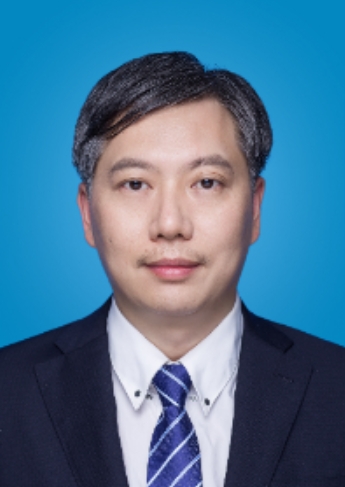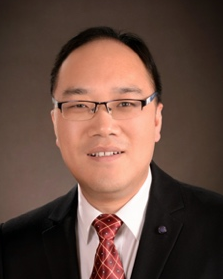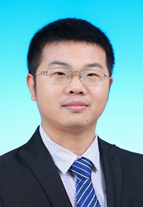
Speakers
Prof. Housheng Su, Huazhong University of Science and Technology, ChinaNational Science Fund for Distinguished Young ScholarsSpeech Title: Coordinated control and distributed observation of cross domain unmanned systems Abstract: This report first introduces the modeling and controllability analysis of cross domain unmanned systems (UAVs and USVs) collaborative networks, focusing on the characteristics of multi-time scales and dispersion of cross domain unmanned systems, and then provides research progress in distributed observation, distributed interval observation, and mobile distributed observation. Bio: Professor Housheng Su, a Professor and Doctoral Supervisor at the School of Artificial Intelligence and Automation, Huazhong University of Science and Technology (HUST), is a recipient of the National Science Fund for Distinguished Young Scholars and was selected for the Young Top-notch Talents Program of the National Ten Thousand Talents Plan. He serves as Deputy Director of the Engineering Research Center for Autonomous Intelligent Unmanned Systems (Ministry of Education). After earning his Ph.D. from Shanghai Jiao Tong University in 2008, he has dedicated his career to multi-agent cooperative control theory and its applications in unmanned surface vehicle (USV) swarms. Addressing both fundamental scientific challenges and critical application needs in unmanned swarm collaboration, he has achieved groundbreaking results in cooperative control frameworks for USV clusters. His honors include the Second Prize of the National Natural Science Award (ranked 3rd), First Prize of the Natural Science Award (Ministry of Education, ranked 2nd), First Prize of the Hubei Provincial Natural Science Award (ranked 2nd), and First Prize of the Guangdong Provincial Technology Invention Award (ranked 3rd). He is also recognized as a Highly Cited Researcher by Clarivate and Elsevier, ranked among the world’s top 0.05% most influential scholars by ScholarGPS and the top 2% of global scientists by Stanford University. Additionally, he leads the Hubei Provincial Innovation Research Group, holds the Hubei Provincial Outstanding Youth Fund, and was selected for the Ministry of Education’s New Century Excellent Talents Program. He has presided over six National Natural Science Foundation of China (NSFC) projects and serves as an evaluation expert for national talent programs (Ministry of Science and Technology), NSFC Information Division panels, and the Hong Kong Research Grants Council (RGC). With over 200 SCI-indexed publications, his work includes 30+ ESI Highly Cited Papers and 100+ IEEE Transactions papers. He currently serves as Associate Editor for the IEEE Transactions on Systems, Man, and Cybernetics: Systems and other international journals. |
|
| Prof. Wenwu Yu, Southeast University, ChinaSpeech Title: Theories and Applications of Distributed Optimization in Networks Abstract:Distributed optimization is solved by the mutual collaboration among a group of agents, which arises in various domains such as machine learning, resource allocation, location in sensor networks and so on. In this talk, we introduce two kinds of distributed optimization problems: (i) the agents share a common decision variable and local constraints; (ii) the agents have their individual decision variables but that are coupled by global constraints. This talk comprehensively introduce the origin of distributed optimization, classical works as well as recent advances. In addition, based on reinforcement learning, shortest path planning, and mixed integer programming, we build the distributed optimization framework of distributed optimization, and also discuss their applications. Finally, we make a summary with future works for distributed optimization. Bio: Wenwu Yu received the B.Sc. degree in information and computing science and M.Sc. degree in applied mathematics from the Department of Mathematics, Southeast University, Nanjing, China, in 2004 and 2007, respectively, and the Ph.D. degree from the Department of Electronic Engineering, City University of Hong Kong, Hong Kong, China, in 2010. Currently, he is the Dean in the School of Mathematics. He is also a Full Professor with the Endowed Chair Honor in Southeast University, China. Professor Yu is also the Executive Deputy Director of the Jiangsu Provincial Key Laboratory of Networked Collective Intelligence, the Vice Director of the Key Laboratory of Measurement and Control of Complex Systems of Engineering, Ministry of Education of China, the Head of the Information Mathematics Discipline in the Research Center for Mathematical and Physical Fundamentals, Purple Mountain Laboratories, the Executive Director of the Jiangsu National Center of Applied Mathematics in Southeast University, and the Huawei-Southeast University Networked Collective Intelligence Joint Innovation Lab.Dr. Yu held several visiting positions in Australia, China, Germany, Italy, the Netherlands, and the USA. His research interests include multi-agent systems, complex networks and systems, disturbance control, distributed optimization, machine learning, game theory, cyberspace security, smart grids, intelligent transportation systems, big-data analysis, etc. Dr. Yu severs as an Editorial Board Member of several flag journals, including IEEE Transactions on Circuits and Systems II, IEEE Trans. Industrial Cyber-Physical Systems, IEEE Transactions on Fuzzy Systems, IEEE Transactions on Industrial Informatics, IEEE Transactions on Systems, Man, and Cybernetics: Systems, Science China Information Sciences, Science China Technological Sciences, etc. He is also the Editor-in-Chief of Complex Engineering Systems. He was listed by Clarivate Analytics/Thomson Reuters Highly Cited Researchers in Engineering in 2014-2024. He publishes about 100 IEEE Transactions journal papers with more than 20,000 citations. Moreover, Dr. Yu is also the recipient of the Second Prize of State Natural Science Award of China in 2016. He is also the Cheung Kong Scholars Programmer of Ministry of Education of China (Artificial Intelligence). |
Prof. Xiwang Dong, Beihang University, ChinaSpeech Title: Cooperative Control Theory for Swarm Systems and Its Applications in Aircraft SwarmAbstract: Swarm Intelligence: A Key Research Area in Next-Generation Artificial Intelligence. Aircraft represent a quintessential platform in swarm systems, demonstrating vast application potential in both military and civilian domains. Cooperative control serves as the foundation and pathway for achieving intelligent emergent behaviors in swarm systems. Swarm systems, exemplified by aircraft clusters, exhibit distinctive features such as large-scale deployment, open architecture, high dynamic adaptability, and strong robustness. These characteristics enable the distributed implementation of cooperative control algorithms for swarm systems. This report focuses on three core technologies in swarm cooperative control: Distributed Time-Varying Formation Control, Formation Tracking Control, Formation-Encirclement Integrated Control. The effectiveness of these proposed technologies is validated through systematic flight experiments on UAV swarms. Furthermore, we demonstrate their practical application using the dense formation speed traversal competition from the PLA Air Force's "Unmanned Edge" Intelligent UAV Swarm System Challenge, where our team achieved consecutive championships. Finally, we outline potential future research directions in this field. Bio:Dong Xiwang is a Blue Sky Distinguished Professor (Level II) and doctoral supervisor at Beihang University. He currently serves as Director of the Institute of Unmanned Systems at Beihang University, Deputy Chief Engineer for Artificial Intelligence at Shenyang Aircraft Design and Research Institute of AVIC, and Deputy Secretary-General of the Chinese Institute of Command and Control. Recognized as a national leading talent, he has been honored with prestigious titles including Outstanding Young Scholar from MIIT, Beijing Outstanding Young Scholar, and National Excellent Young Scientist. His research focuses on swarm intelligence, cooperative guidance & control, collaborative decision-making, and aircraft swarm systems. Bridging theory and practice, he has developed UAV and UGV-based swarm intelligence verification platforms that supported three consecutive championship wins in fixed-wing swarm events at the PLA Air Force UAV Cluster Challenge, achieving record-breaking speed traversal missions. With over 100 SCI papers published in top journals including IEEE TAC, TCST and Automatica, his work has garnered 5,000+ citations. He has been consistently listed among Elsevier's Highly Cited Chinese Researchers and the Top 2% of Global Scientists. His academic contributions include 3 English monographs published by Springer and Taylor & Francis, along with 30+ authorized/applied national invention patents. His distinguished honors include: First Prize in Military Technological Invention, Third Prize in National Defense Technology Invention, First Prize in Technological Invention from Chinese Institute of Command & Control, First Prize in Scientific & Technological Progress (CICC), Wu Wenjun AI Excellent Youth Award, First Prize in Technological Invention from China Invention Association, Youth Scientist Award from CICC. |
|


